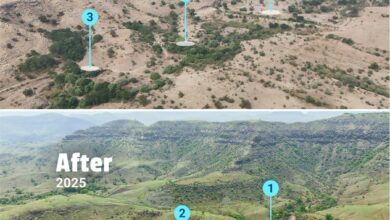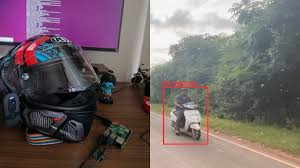GAUKRITI: ORGANIC PAPER THAT GERMINATES INTO PLANTS ..!
The new organic paper technology from India that gives birth to plants & trees and not the other way round. It also saves trees, rivers & ecology.

Gaukriti is a brand that produces eco friendly organic paper in India via a patented technology. This paper is claimed to be harmless even if eaten by living beings and even germinates in useful plants.
By India Input Research desk
How do we manufacture papers? By felling trees. What do we do when the paper ceases to be useful? We crush or tear it and throw in dustbin. It eventually lands somewhere in soil and begins to decompose, releasing the chemicals in to the nearby soil. But here is more about a new kind of organic paper that doesn’t require cutting of trees, doesn’t consist of any hazardous materials or chemicals and instead, contains about twelve kinds of seeds inside it. There are Tulsi, marigold, a range of small flowers, veggies like carrots, cabbage, tomatoes, methi etc. So when it lands in a soil, it gradually begins to germinate into one or more plants.. that of herbs, vegetables etc.
This unique innovation by Jaipur based Bhimraj Sharma saw launch of the ‘talk of the nation’ startup ‘GauKriti’.
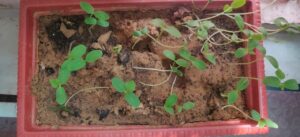
The range of seeds is selected in such a way that, wherever the paper is sent in India or abroad, whatever may be the prevalent temperature and weather condition, one or more seeds from the paper are expected to germinate when put in soil. The thickness of each of these pages varies from 90 GSM to 400 GSM.
The seeds utilized herein, cost anything between rupees five hundred per kg to rupees five thousand per kg. Consequently, the manufacturing cost of a 20 or 30 inch sheet comes to minimum rupees fifty. Currently these papers are mostly used in the products like envelopes, wedding invitations, hand bags etc. Our clients in US say there is a huge curiosity and demand for these papers and related products. Most importantly, the ingredients behind production of these papers are waste materials including Cow dung and Gau-mutra.
Gaukriti: The beginning!
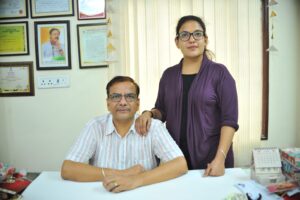
Bhimraj Sharma,50 years, who has been in the business of printing papers since 20 years, began working on this in 2017 when his daughter Jagruti, now a student of design, prompted him about the idea. The organic paper technology has since been registered for Patent and the subsequent process is on.
What is the main product from a cow?
Says Bhimraj Sharma, – If a cow’s age is 15 years, she gives milk for about five years during a life time, whereas she gives Gobar (cow dung) and Gau-mutra (cow urine) all through her life which have immense ecological, medicinal and agricultural value. If we consider these as the main product from a cow, only then, we can encash the optimum benefits.
When asked about the Cow dung he replies, -It is used to get Bio gas, organic manure and also used in preparing earthen lamps and flower pots etc. But, I always believed that there can be more meaningful and beneficial ways to use it. When my daughter prompted me about the idea of an organic paper and similar items, I took some cow dung to a friend’s factory and began research. Soon we had prepared organic paper using cow dung, Gau mutra and waste cloth pieces that are left behind in textile industry. All these three ingredients are considered waste and do not hold any value for the public presently. But we use these to produce good quality paper that fetches better price and can be used in place of the artificial chemical paper. Using our organic paper we have also manufactured eco friendly masks, envelopes, hand bags and several other products.
Gaukriti: Is the paper safe ?
Mr.Sharma laughs and says confidentally, – I can eat the paper that we produce in front of the general public. It is a hundred percent organic and does not contain harmful chemicals. But can you eat the chemically made paper from the paper mills? You won’t. Plus, the real cost of the paper from mill is too high.
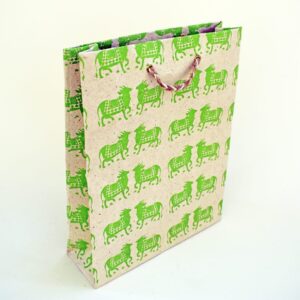
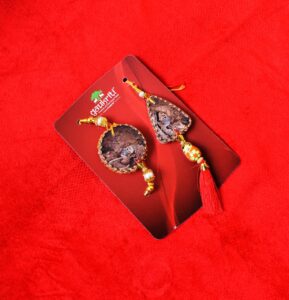
Comparison between the two papers
According to Mr. Bhimraj Sharma, -For producing just one tonne of common mill paper, estimated 20 trees are cut. Each of these trees is about 30 feet long and 10 inch thick. And we are using lacs of tonnes of mill made paper every day. The per day damage to the ecology is immense. The irony is, we print news on this paper about the need for saving trees and saving environment. Estimated forty per cent of total tree felling is aimed at manufacturing the mill paper. Don’t these trees use water and soil nutrients? Isn’t ita big wastage? Can we really calculate the amount of wastage for mill paper production. On the other side, for our organic paper, not a single tree is needed to be cut. The mill paper involves use of hazardous chemicals which are banned elsewhere. But, no chemicals involved here in the organic paper.
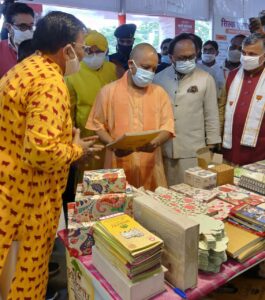
Mr Sharma tells indiainput.com that, -Today by using Cow dung and other waste materials, we can produce 70 main items and over a hundred varities of Rakhis. We have received letters of appreciation from the Prime Minister Narendra Modi and the UP chief minister Yogi Adityanath ji. But the journey was tough. When I was working on the idea, many used to claim that i had gone crazy and was wasting my time. Some friends said that even if you get success in creating nice paper from the waste, who would buy it? There would be hesitation on part of the buyers.
Initially, their fears were proved right. People did not easily understand the product’s true worth and importance. We then switched over and began producing utility products out of the same paper. Today we have a range of useful products made of cow dung and Gau mutra. The products are valued at ranging from rupees fifty to one thousand five hundred. If we are aware of the harm done due to mill paper, we must start a new beginning. How many more trees will have to be cut before we all realise the truth and act accordingly ? There is no option to the organic paper. It is definitely the future
.
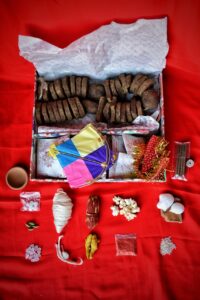
indiainput.com wishes all the best to Shri Sharma and ‘Gaukriti’.
Contact details:
www.gaukriti.com
YouTube: Gaukriti
Mobile no.: 9829055961.

